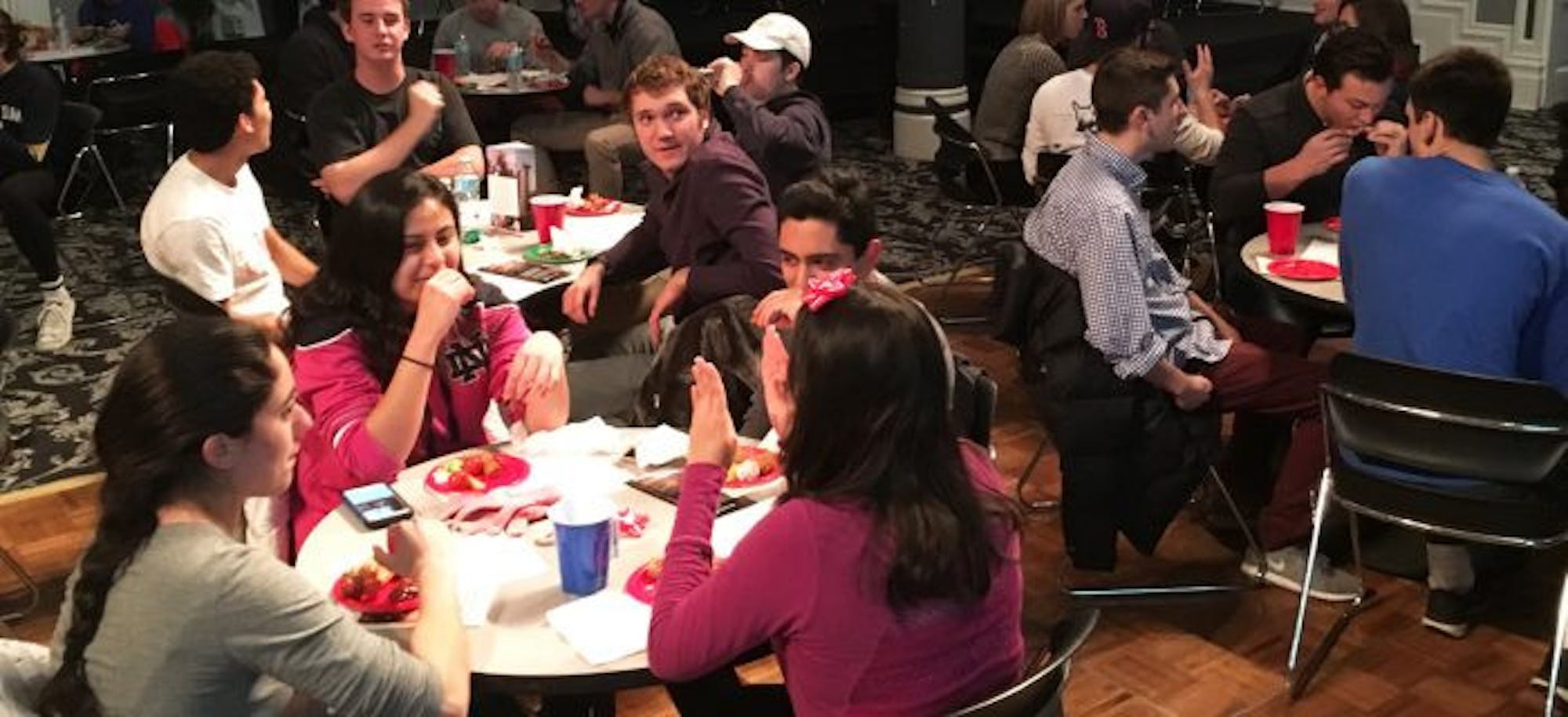While many students are preparing to celebrate the holidays by decorating their dorms or shopping for presents, classics club is bringing an ancient celebration to campus Thursday: Saturnalia.
“Saturnalia was a Roman holiday or festival that occurred around Christmas time, and it was in celebration of the Roman god Saturn,” senior Olivia May, the club’s vice president, said. “It was a lot of public festivities, feasting, banqueting, gift-giving — so some parallels with Christmas.
“There was also this idea of an inversion of the social order, so masters and slaves would swap positions temporarily, which is kind of interesting also — masters would be serving their slaves meals.”
Sophomore and classics club parliamentarian Nicole Larkin said Christmas has its roots in Saturnalia.
“Classics is sort of ingrained in our Western society because Christmas is sort of based on Saturnalia,” she said. “I guess you don’t really see it in minor things, but more in the general concepts of society.”
The celebration is a fun way to de-stress before finals week, Larkin said.
“It’s a fun time to be with friends and to just hang out and take a break from finals, especially since it’s going to be on the last day of class,” she said. “I know last year, I was in the middle of working on my final project, too, and I took a break to go.”
The festivities will include refreshments, Christmas carols and a lecture about the history of Saturnalia, May said.
“I really love the Latin Christmas carols, personally,” she said. “I always think it’s fun when we can pull in the ancient languages and apply them to our lives today. It’s hard sometimes when you study a language a lot of people call dead, and it’s people who do stuff like this that keeps it alive. I think that’s really cool.”
Classics club allows students to learn about ancient cultures outside of the classroom in a fun environment, May said.
“Our goal is to promote the ancient languages, Latin and Greek, and ancient cultures at Notre Dame,” she said. “We do a lot of events that kind of pull in a little bit of what classics is in academic disciplines, but also more of the fun stuff.”
May said these events allow students to interact with the classics in a more concrete way.
“I think classics club tries to tie humanities in with what we’re learning with how we interact with each other on campus, kind of intersecting the academic and the social,” she said. “ ... Especially for disciplines that don’t necessarily have that practical application, it’s a good way to make sure we’re still kind of engaging with what we learn.”













